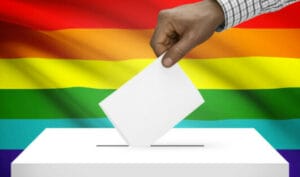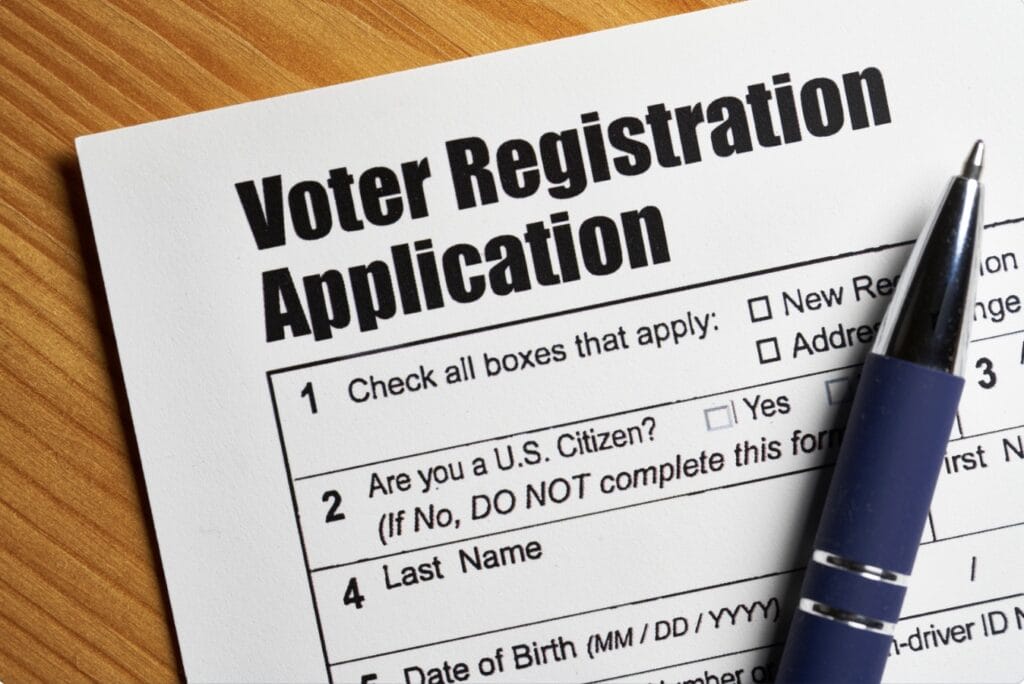This weekend South Carolina held a historic primary that centered the voices and votes of local Southerners by a major political party for the first time at the start of election season.
The Democratic National Committee chose to make South Carolina the first state to kick off the party’s official primary calendar this month after the state delivered an instrumental win for President Biden in 2020, edging out Iowa and New Hampshire as states where the first caucuses and primaries regularly take place.
Christale Spain, South Carolina’s state Democratic party chair and the first Black woman to serve in the role, previously characterized the primary to Politico as “unprecedented” and “unchartered waters” for being “contested but not competitive” for an incumbent president. She also highlighted the party’s get out the vote program as historic as the party typically doesn’t get involved in a contested primary. “I’m committed to making sure that our voters have all the information they need to go and vote.”
“My intersecting identities as a Black, queer, person of faith in South Carolina are complex – and it’s rare that I see outreach to people like myself in mainstream politics,” said Kenya Cummings (they/them), Organizing Coach and Trainer with the Campaign for Southern Equality, who is also a leader in the SC United for Justice & Equality coalition and the South Carolina Housing Justice Network, after the primary took place. “I’m grateful to see a major political party hold the nation’s first primary in a diverse, traditionally red Southern state and to center our votes and voices as a signal to the rest of the country. I’m committed to knowing all the facts ahead of the November election and voting with my conscience, taking into account candidate stances on a multitude of issues that will keep me and my loved ones safe. Democracy and fair elections take place in their best form when voters from all backgrounds are included and when we turn out in record numbers to hold our elected leaders accountable – and it’s what I hope our entire country intends to do.”

South Carolina is home to an estimated 167,000 LGBTQ people in South Carolina, with 30% of LGBTQ adults in the state raising families – one of the highest percentages of LGBTQ people raising families in the nation. Roughly 540,000 voters cast ballots were cast the 2020 Democratic primary in the state, which was an open election and heavily contested. Voters proceeded to hand a strong victory to President Joe Biden as he swept all of the state’s 46 counties and eventually the party’s nomination, before ousting former President Trump in the general election. Media outlets called the primary for President Joe Biden and Vice President Kamala Harris this weekend as well shortly after polls closed.
“The outcome of tonight’s primary election in South Carolina is a key reminder of the significance of the Black and LGBTQ vote and the broader impact of reaching constituents who represent marginalized and diverse communities that are often shut out of election discourse,” said Sarah Kate Ellis (she/her), GLAAD President and CEO. “Candidates must be clear at the start of their campaigns about their stances on freedom, fairness, equal opportunity, and equal access — values that most strongly affect people who are Black, brown, LGBTQ, poor, or live in rural areas; and who are often disenfranchised. Tonight was historic because South Carolina’s critical voting base — which includes high populations of Black and LGBTQ people — was the first to be able to make their voices heard at the polls. Members of vulnerable communities always deserve to be a critical priority in our candidates’ campaign plan considerations. No one should underestimate voter turnout among those who have felt the burning sting of discrimination; and there’s no doubt we’ll see the same passion and turnout again in November.”
Polling and turnout analysis from the 2020 election indicate that LGBTQ voters played a deciding role in the victory of Joe Biden for President and in key battleground states.
The Biden-Harris administration’s LGBTQ record includes more than 320 appointments, nominations, statements and policies of support, as documented via GLAAD’s Biden Accountability Tracker.
GLAAD is monitoring candidate stances on LGBTQ issues and doing outreach to debate moderators through the 2024 election cycle, urging media to include LGBTQ voters and issues affecting the community in their coverage. To learn more and to check your voter registration, visit www.glaad.org/vote.













